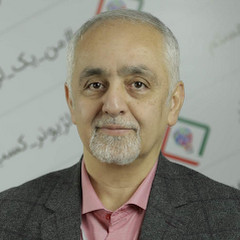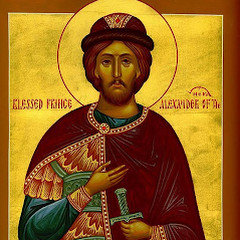
Photos
There are no photos for this place yet!
Reviews — 8



موزه مدت هاست تعطیله و فقط تومحوطه میتونید برید. حیف همچین اثری و این همه بازدید کننده که وارد سایت پردیسان میشن و چیزی برای دیدن وجود نداره . واقعا جای تاسف داره

این موزه در پارک طبیعت پردیسان در شمال غربی تهران قرار دارد. موزه تنوع زیستی در سال ۱۳۸۳ خورشیدی با تأکید بر اهمیت و ارزش تنوع زیستی و در راستای وظایف قانونی سازمان حفاظت محیط زیست ایران آغاز به کار کردهاست.
هدف از ایجاد این موزه عمومی در شهر تهران این بودهاست که با استفاده از کادر کارشناسان خود نقش مؤثری در تحقیقات، اطلاعرسانی و آموزش برای گروههای مختلف سنی و علاقهمندان به محیط زیست ایفا نماید.
طراح موزه احمد گشایشی، مهندس معمار، میباشد که از همکاری هنرمندانی نظیر فریده لاشایی، نقاش برجسته، در این اثر معماری بهره برده است.
یکی از اشیای جالب در این موزه، قاب پوست ببر خزری میباشد. این پوست متعلق به ببر خزری است که در پارک ملی گلستان در سال ۱۳۲۹ هجری شمسی شکار شده است که به روش سنتی دباغی شده و در سال ۱۳۸۳ توسط مهندس سید حسین آقامیری مدیرکل حفاظت محیط زیست استان خراسان به موزه تنوع زیستی اهدا گردید.
هدف از ایجاد این موزه عمومی در شهر تهران این بودهاست که با استفاده از کادر کارشناسان خود نقش مؤثری در تحقیقات، اطلاعرسانی و آموزش برای گروههای مختلف سنی و علاقهمندان به محیط زیست ایفا نماید.
طراح موزه احمد گشایشی، مهندس معمار، میباشد که از همکاری هنرمندانی نظیر فریده لاشایی، نقاش برجسته، در این اثر معماری بهره برده است.
یکی از اشیای جالب در این موزه، قاب پوست ببر خزری میباشد. این پوست متعلق به ببر خزری است که در پارک ملی گلستان در سال ۱۳۲۹ هجری شمسی شکار شده است که به روش سنتی دباغی شده و در سال ۱۳۸۳ توسط مهندس سید حسین آقامیری مدیرکل حفاظت محیط زیست استان خراسان به موزه تنوع زیستی اهدا گردید.

Fantastic, modern and one of the well maintained museums in Tehran with valuable collections from all over the world.
Friendly staff and well equipped to receive student groups.
Friendly staff and well equipped to receive student groups.

تنوع حیواناتش فوق العاده بود. من همراه دختر 6ساله ام رفتم، برای هر دو تامون تجربه خیلی خیلی خوبی بود. حیواناتی که همیشه در فیلم ها دیده بودیم رو از نزدیک دیدن و زیبایی،ابهت و عظمتشون رو درک کردن خیلی عالی بود. تنها ایرادش نورپردازی بعضی قسمتها نقص داشت. واقعا حیفه که چنین مکان خوب و کم نظیری اینقد ناشناخته و مغفول افتاده.

This museum has a good layout to it. Many mammals, some sea life, some insects and a few plants are on display. Personally I wish they had a much larger exhibit of plants and trees.
It is worth coming here if you have an interest in Iran's ecology. Unfortunately the museum didn't have any literature to give out about its exhibits. Literature or fliers could be very helpful in generating more exposure and traffic to the museum.
I would also recommend that the museum work with schools throughout Tehran to try and bring in young people and students to tour the museum. Maybe they're already doing this, I don't know. But I do know that schools in Europe and North America do this type of thing.
It's very important for the youth of the country to understand how important ecology and Iran's wildlife are.
It is worth coming here if you have an interest in Iran's ecology. Unfortunately the museum didn't have any literature to give out about its exhibits. Literature or fliers could be very helpful in generating more exposure and traffic to the museum.
I would also recommend that the museum work with schools throughout Tehran to try and bring in young people and students to tour the museum. Maybe they're already doing this, I don't know. But I do know that schools in Europe and North America do this type of thing.
It's very important for the youth of the country to understand how important ecology and Iran's wildlife are.

It's more like a park rather than biodiversity museum.

The Museum of Biodiversity is one of the museums in the city of Tehran located in the 2nd district of Tehran's municipality in the park area of Pardisan between the highways of Sheikh Fazlollah Noori, Hakim, Hemmat and Yadagh Imam.
The Museum of Biodiversity in 2004, with emphasis on the importance and value of biodiversity and in line with the legal obligations of the Iranian Environmental Protection Agency, has begun. The purpose of this public museum in Tehran has been to use its experts' staff to play an effective role in research, information and education for various age groups and environmentalists.
The interior of the museum booths biodiversity inspired by the nature of Iran, the world and natural habitats of animals design and space. In the Biodiversity Museum, the division is based on a continental-ecosystem system, and numerous samples have been presented at the stands, which include the following pavilions:
1- Iran Extinct Exposure Pavilion: The pavilion includes Iranian lion statues and Caspian tigers, which have been identified as two extinct specimens of Iran over a century ago.
2- Rare specimen stands of Iran: Includes species protected by the Environment Organization, including Asian Asteroids, Crocodiles, Iranian Shortbreads, Hobbara, Black Cockers and Asian Black Bears. ?
3- Iran Biodiversity Exhibit: This pavilion contains a large number of mammalian, bird and reptile species in Iran, which represents the biodiversity of our beloved country. From this collection, we can mention the Iranian Yellow Gentille and the Iranian Gore as examples of Iran and the whole of Bisotun, a world record sample.
4. World Biodiversity Biosphere: Includes biodiversity of mammalian and reptile species from the deserts of Africa to the Arctic, which, in terms of size and magnitude, provided a wonderful collection for visitors to this museum.
5 - Persian Gulf Pavilion: At this booth, we tried to combine aquatic and dry samples with the diorama of mangroves and mangroves from the coastal view of the region, which is associated with the biodiversity of the Persian Gulf.
6. Asian Continental Pavilion: This stands for the Asian continent's biodiversity, including the Bengal Tiger as a Indicator of the Indo-Indochina and the whole of the Marquor, as the example of the country's record.
7- European continent pavilion: Due to the small variety of species in the continent, a small amount of the museum is dedicated to it, one of the most important examples of this continent, Shamova.
Africa's Continental Booth: Africa is a continent rich in biodiversity and is the most diverse booth in the museum. Most examples of this booth belong to the family of antelopes.
9. American Continental Pavilion: This booth contains samples of mammals and birds, some of which are currently found only in the Americas. Of these, you can refer to the mountain lion (Puma) and Jaguar.
10th Oceania Pavilion: The booth consists of the Emu species as the bird of Australia, as well as the statue of gray and red kangaroos.
11. Antarctic hangar booth: In this part, a penguin model has been featured as an example of the Antarctic Index.
One of the most interesting things in this museum is the Caspian Tiger. This skin belongs to the Caspian Tiger, which was hunted in the Golestan National Park in 1951.
The Museum of Biodiversity in 2004, with emphasis on the importance and value of biodiversity and in line with the legal obligations of the Iranian Environmental Protection Agency, has begun. The purpose of this public museum in Tehran has been to use its experts' staff to play an effective role in research, information and education for various age groups and environmentalists.
The interior of the museum booths biodiversity inspired by the nature of Iran, the world and natural habitats of animals design and space. In the Biodiversity Museum, the division is based on a continental-ecosystem system, and numerous samples have been presented at the stands, which include the following pavilions:
1- Iran Extinct Exposure Pavilion: The pavilion includes Iranian lion statues and Caspian tigers, which have been identified as two extinct specimens of Iran over a century ago.
2- Rare specimen stands of Iran: Includes species protected by the Environment Organization, including Asian Asteroids, Crocodiles, Iranian Shortbreads, Hobbara, Black Cockers and Asian Black Bears. ?
3- Iran Biodiversity Exhibit: This pavilion contains a large number of mammalian, bird and reptile species in Iran, which represents the biodiversity of our beloved country. From this collection, we can mention the Iranian Yellow Gentille and the Iranian Gore as examples of Iran and the whole of Bisotun, a world record sample.
4. World Biodiversity Biosphere: Includes biodiversity of mammalian and reptile species from the deserts of Africa to the Arctic, which, in terms of size and magnitude, provided a wonderful collection for visitors to this museum.
5 - Persian Gulf Pavilion: At this booth, we tried to combine aquatic and dry samples with the diorama of mangroves and mangroves from the coastal view of the region, which is associated with the biodiversity of the Persian Gulf.
6. Asian Continental Pavilion: This stands for the Asian continent's biodiversity, including the Bengal Tiger as a Indicator of the Indo-Indochina and the whole of the Marquor, as the example of the country's record.
7- European continent pavilion: Due to the small variety of species in the continent, a small amount of the museum is dedicated to it, one of the most important examples of this continent, Shamova.
Africa's Continental Booth: Africa is a continent rich in biodiversity and is the most diverse booth in the museum. Most examples of this booth belong to the family of antelopes.
9. American Continental Pavilion: This booth contains samples of mammals and birds, some of which are currently found only in the Americas. Of these, you can refer to the mountain lion (Puma) and Jaguar.
10th Oceania Pavilion: The booth consists of the Emu species as the bird of Australia, as well as the statue of gray and red kangaroos.
11. Antarctic hangar booth: In this part, a penguin model has been featured as an example of the Antarctic Index.
One of the most interesting things in this museum is the Caspian Tiger. This skin belongs to the Caspian Tiger, which was hunted in the Golestan National Park in 1951.